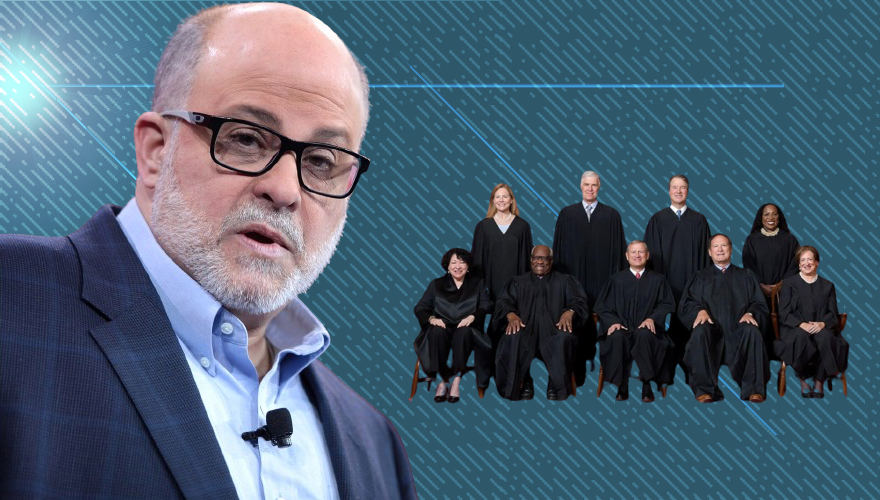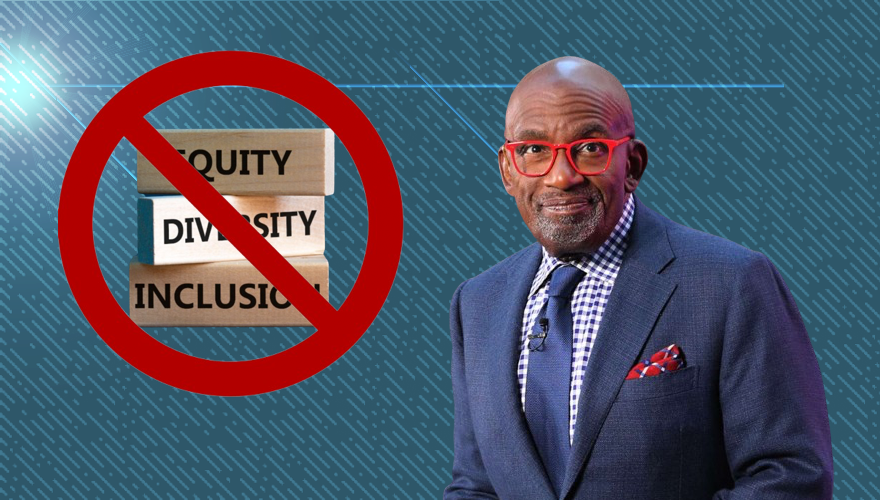Broadcaster and lawyer Mark Levin suggested that if former President Donald Trump is found guilty in his “hush money” trial, his lawyers should seek an emergency appeal to the U.S. Supreme Court (SCOTUS).
The host of The Mark Levin Show issued his legal advice as jury deliberations began at the Manhattan Criminal Courthouse on Wednesday.
“In Bush v. Gore, the United States Supreme Court interceded in the Florida Supreme Court's deliberations because that Court was changing the Florida voting system on the fly, thereby violating the EQUAL PROTECTION rights of the Florida voters; that is, the state court was establishing new standards for resolving a presidential election,” Levin wrote on X.
“The Manhattan trial court has done worse,” he said. “It has taken up a case in which there is exclusive FEDERAL JURISDICTION (involving the Federal Election Campaign Act) despite the fact that the federal agencies with authority over enforcing federal campaign laws, the Federal Election Commission and the Southern District of New York/U.S. attorney's office, declined to bring charges.” MY LEGAL ADVICE TO PRESIDENT TRUMP'S ATTORNEYS: NEXT STEP U.S. SUPREME COURT
In Bush v. Gore, the United States Supreme Court interceded in the Florida Supreme Court's deliberations because that Court was changing the Florida voting system on the fly, thereby violating the EQUAL…
— Mark R. Levin (@marklevinshow) May 29, 2024
Levin went on to cite various other aspects of the trial that he viewed as problematic, including the prosecution’s unwillingness to articulate the details of the federal offense Trump committed and the gag order imposed in the middle of a federal campaign.
He also asserted that Judge Juan Merchan is conflicted because his daughter, Loren, is a progressive political consultant who has allegedly profited from Trump’s trial.
“Moreover, this state court could have easily avoided influencing and interfering with the federal presidential election merely by setting a later time for the case, if the court actually believed it somehow had merit,” Levin continued. “After all, the state waited years to bring its case.”
In addition to a possible violation of equal protection under the 14th Amendment, he argued constitutionally protected due process rights for future Republican presidential candidates had been violated.
“Furthermore, the voters are to determine the federal election outcome without the interference of a state court attempting to influence the result,” he added.
“If President Trump is found guilty of any of the thirty-four charges, I would strongly encourage his attorneys to seek an emergency appeal to the U.S. Supreme Court based, at least in significant part, on Bush v. Gore,” Levin concluded.
In Bush v. Gore, SCOTUS reversed a Florida Supreme Court ruling that ordered a selective manual recount of the state’s ballots in the U.S. presidential election, according to Britannica.
“Despite violating the Fourteenth Amendment by using disparate vote-counting procedures in different counties, Florida did not need to complete a recount in the 2000 presidential election because it could not be accomplished in a constitutionally valid way within the time limit set by federal law for resolving these controversies,” per SCOTUS’ website.
On Wednesday, Merchan spent almost two and a half hours describing the possible outcomes to the members of the jury.
“It is not my responsibility to judge the evidence here. It is yours,” he said, per AP News.
According to Jonathan Turley’s reporting from inside the courtroom, Merchan told the jury that there was no need to agree on the alleged crime the prosecution claimed Trump was trying to cover up by supposedly authorizing payments to attorney Michael Cohen. Manhattan District Attorney Alvin Bragg elevated the charges against Trump to a felony for alleged election interference. If the state had not pursued the case as a felony, the misdemeanor charges would have fallen outside the statute of limitations.
Merchan told the jury they could be split 4-4-4 and he would treat the verdict as unanimous.
“It is really outrageous,” Andy McCarthy, a former assistant United States Attorney, told Fox News. “In a normal criminal case, every statutory crime has what we call elements of the offense… those are the things the jury has to agree on unanimously that they were proven beyond a reasonable doubt.”
“Here, what we’re doing is taking the element that actually makes this a felony … and the judge is telling them they don’t have to agree what the other crime is,” said McCarthy. “The only reason they are still able to bring this case is because it’s a felony, allegedly, and yet now the judge is saying, ‘You know, you don’t have to agree on what the felony is.’”
Hannah Claire Brimelow contributed to this report

